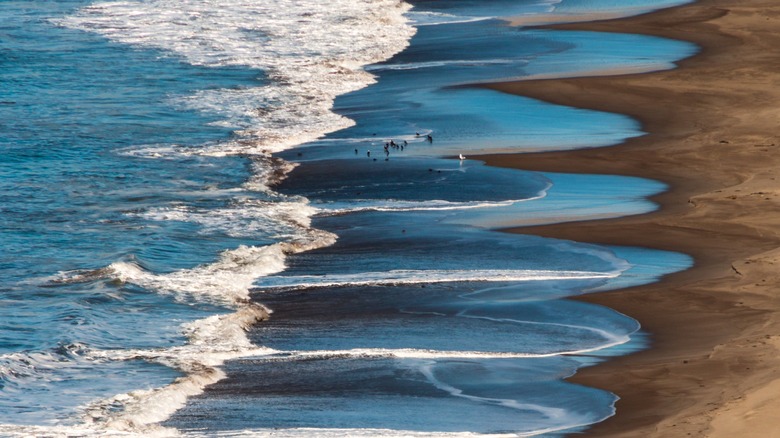Wildcat Beach, California
It’s only about an hour’s drive from San Francisco, but Wildcat Beach’s hard-to-reach location within the Phillip Burton Wilderness Area means it lacks the crowds you might expect. If you can manage the 5.5-mile, off-trail hike to get there, you’ll enjoy one of the world’s most beautiful remote beaches, surrounded by majestic cliffs and close to numerous nature trails and lovely sights.
At high tide, the beach is covered by water, but you can still take in the stunning landscape by setting up camp at the nearby Wildcat Campground, which overlooks the coast and also has beach access. Campsites are limited, so be sure to reserve in advance – or choose another campground among the area’s offerings. These include Glen Campground (about an hour-and-half hike from Wildcat Beach) and Coast Campground (about a three-and-a-half hour hike from Wildcat Beach). If you’re looking for even more to do, the spectacular Alamere Falls, waterfalls that flow directly onto the beach, is located at the southern end of Wildcat Beach — but if you’re still not in the mood for crowds, be aware that the waterfalls can attract a lot of visitors.
Cumberland Island, Georgia
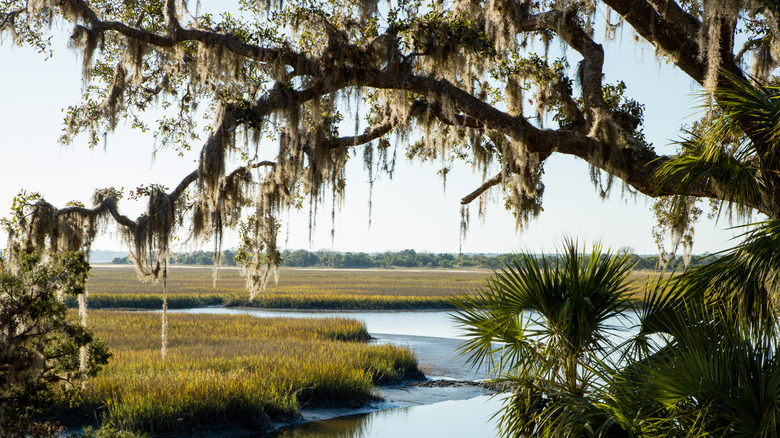
A small island off the Georgia coast, Cumberland Island is only reachable by ferry, keeping it pretty crowd-free. While there may be smallish crowds of day-trippers, stay the night and you’ll practically have the island yourself, as there are only two options for accommodations: the fancy Greyfield Inn or rugged campgrounds that limit the number of campers and require a permit and reservation in advance. Even a day trip to Cumberland Island offers visitors a sense of escape. Highlights include sweeping natural coastline vistas, fresh air, forests, and a chance to spot wild horses and newly hatched loggerhead turtles. No wonder most of the island has been a national park for decades.
History fans will also find things to love here, including the fascinating historic district, which features homes and other sites that are tied to the Timucua people, Revolutionary War heroes, and the Carnegie family. The Ice House Museum is a small site that spotlights Cumberland Island’s history, providing a nice overview. Of course, most visitors will probably be at least a little bit distracted by all the stunning nature just outside.
If Cumberland Island is now your dream crowd-free destination, be sure to plan ahead. Bring food and drinks with you, know the ferry schedule, and reserve ferry tickets and spots on any guided tours well in advance.
St. Elmo, Colorado
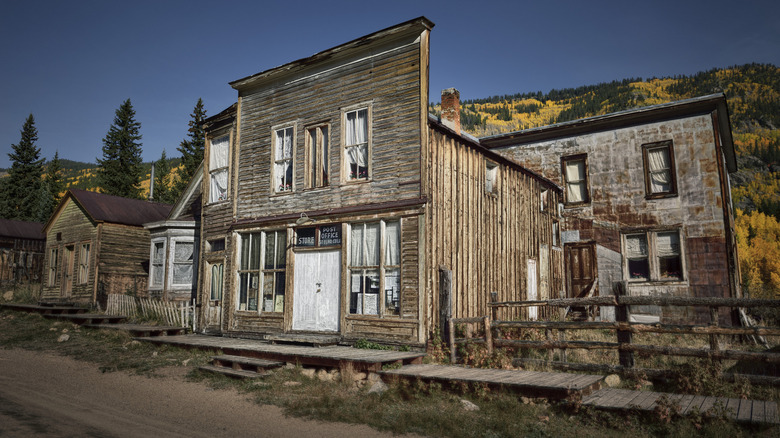
Alexey Kamenskiy/Shutterstock
Founded in the 1880s and almost totally abandoned in the 1920s, the former mining town of St. Elmo, Colorado, is considered one of the U.S.’s best-preserved ghost towns. The site draws crowds in the summer and on weekends in clement weather. But on a weekday visit, especially in the winter months, you may feel like you’re the last person on Earth while exploring the town’s once-bustling houses and public buildings.
If you’re looking for just a little company (or a neat souvenir or two), you can make a purchase at the General Store, which is still up and running — although it’s a good idea to call and check if it will be open when you’re planning to be there. Nature lovers can also get their fix in and around St. Elmo. The surrounding area offers hiking, trail rides, white water rafting, and more. You can stay in St. Elmo itself, at the charmingly named Ghost Town Guest House, or head to lodgings in nearby small towns like Nathrop and Buena Vista. Many of these places offer access to local hot springs, the perfect way to cap off a day of sightseeing.
Gates of the Arctic National Park & Preserve, Alaska
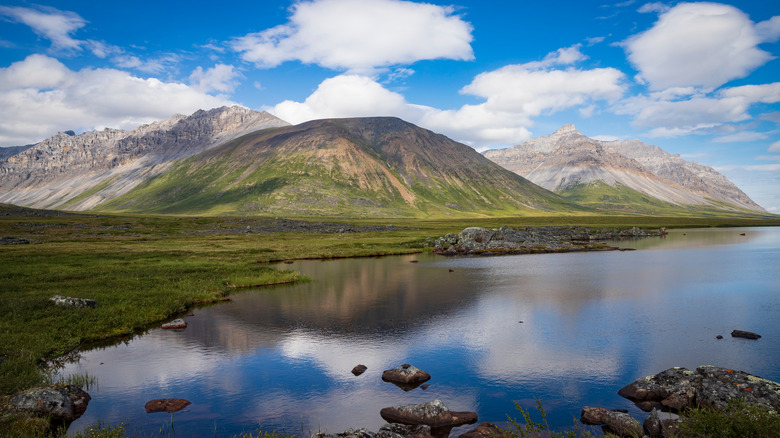
BlueBarronPhoto/Shutterstock
Flee the crowds and take in the grandiose majesty of nature at Alaska’s Gates of the Arctic National Park & Preserve. Not only is this stunning site located outside the continental United States; the fact that you can only get there by plane or by a (very long) hike definitely contributes to making it consistently rank as one of the U.S.’s least-visited national parks.
If you manage to get to Gates of the Artic, you’ll be surrounded by a staggering 8,472,505 acres of completely undisturbed wilderness — there are no roads, trails, or campgrounds. The National Park Service warns visitors that the park doesn’t have amenities or cell phone service, either, so if you choose to spend time here on your own, you need to have outdoor survival skills. Although you might be able to book a trip with an independent tour guide, a visit here isn’t for the faint of heart. But it’s worth it. Not only will you see majestic mountains, winding rivers, and beautiful views of the taiga; several archaeological sites date back thousands of years.
The closest major city to Gates of the Arctic is Fairbanks. If you’re planning to be in Alaska but won’t be near this area, not to worry: Alaska boasts many other impressive national parks where you can enjoy a bit of alone time. With the space that these parks encompass, it’s unlikely that any of them — even more popular destinations like Denali National Park — will feel crowded.
Congaree National Park, South Carolina
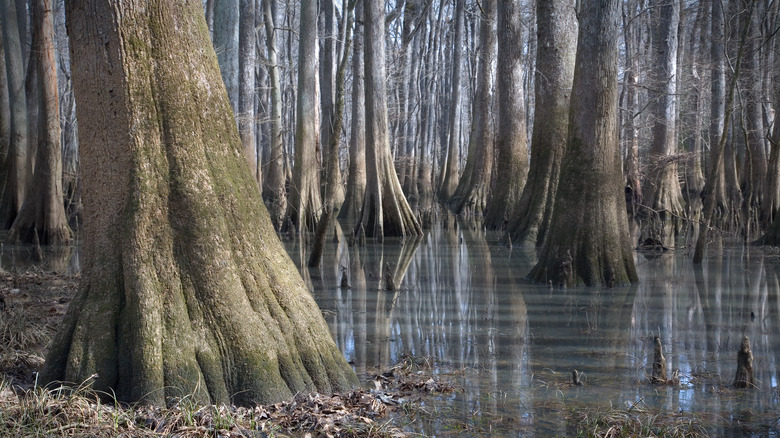
Sebatl/Getty Images
If you can’t escape to a national park outside the continental U.S., don’t worry: There’s still plenty of solitude to be had closer to home. For instance, you can spend some quiet time among the towering trees of Congaree National Park. Despite its unique natural features and easy-to-reach location, just a short drive from the state capital of Columbia, South Carolina, Congaree is one of the U.S.’s least visited national parks.
The park is home to the tallest bottomland hardwood trees in the U.S., with varieties of pine, oak, and elm trees growing over 100 feet tall. Congaree is also located on a floodplain, which means the water often rises high enough to kayak or canoe among these soaring trees (or admire them from the park’s boardwalk and trails). Still, despite its allure, the park only gets a few hundred thousand visitors a year at most. You can visit this crowd-free destination for a day or even stay for a while by camping at one of the park’s two main campgrounds or (with permission in advance) in other, more isolated spots.
Makalawena Beach, Big Island, Hawaii
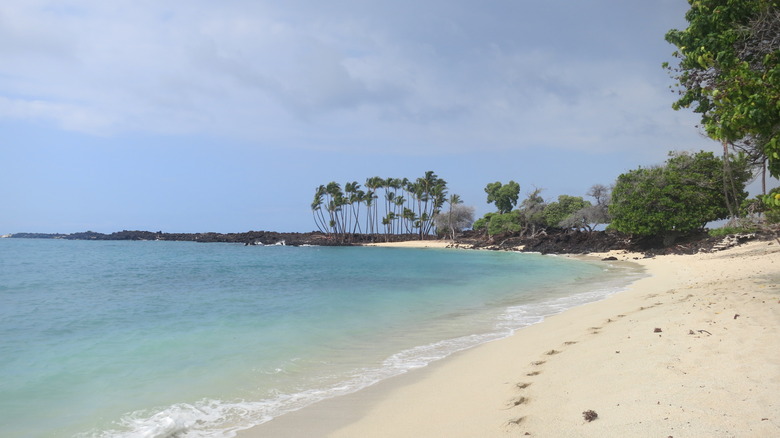
LaurenV/Shutterstock
Located on the Kona Coast of Hawaii’s Big Island, Makalawena Beach boasts white sand to lounge on and opportunities for impressive wildlife spotting. You might encounter a sea turtle or seal, and if you like to snorkel, the beautiful blue water offers lots of sights to take in, since there’s a coral reef just offshore.
Makalawena Beach is the perfect place to catch some sun, peace, and quiet – but despite its appeal, it’s fairly crowd-free, since getting here isn’t easy. You’ll have to take a drive down a rough, unpaved road, then hike about 30 minutes, sometimes over lava. Luckily, this is long-cooled lava, but visitors on review sites like Tripadvisor often say that it’s a good idea to wear sturdy shoes, rather than the flip-flops you’d usually take to the beach.
This long and challenging trek also means you shouldn’t plan on carrying too heavy a load, so you may have to leave some of your favorite seashore accessories behind. On the other hand, be sure to bring drinking water (and snacks, if that’s how you roll), since there aren’t any stands or vendors. It may not be the most typical beach, but the effort, planning, and sacrifice will all be worth it once you reach Makalawena Beach’s beautiful shore.
Dry Tortugas, Florida
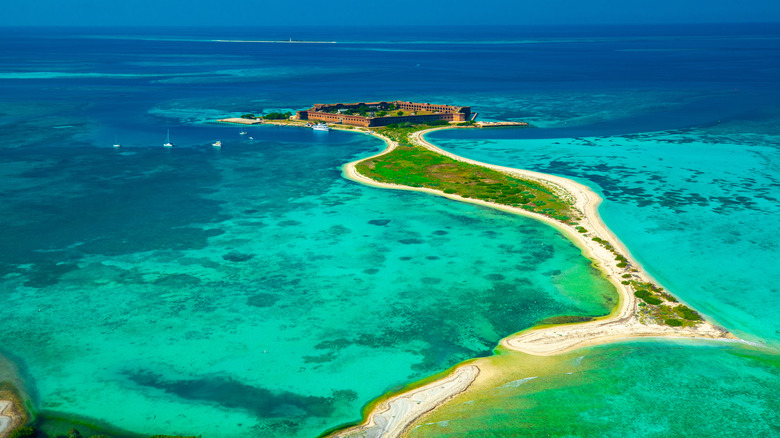
Mia2you/Shutterstock
If you’re longing for a crowd-free getaway, you may be thinking that a Florida beach isn’t going to be on your list of possible destinations. But there are a few Florida beaches where you aren’t likely to have a problem with crowds. Located in the Florida Keys, Dry Tortugas is a national park spanning seven islands that can only be reached by boat or seaplane. This means the islands are often overlooked in favor of the Sunshine State’s myriad of easily accessible beaches.
Dry Tortugas got its name from long-ago sailors, who called the islands “dry” due to their lack of natural sources of freshwater. If you don’t know this, the name might be deceiving, since Dry Tortugas National Park is actually 99% water. The park is famous for its snorkeling and diving options, but that 1% of land is nothing to scoff at. It includes two sea turtle nesting sites and several beaches where visitors can soak up the sun and swim. The land portion of the park is also home to Fort Jefferson, which dates to the 19th century and is one of the largest forts in the country.
If you visit, be sure to bring everything you’ll need, since there are no restaurants or shops on the islands. You should also plan to be unreachable, since there’s no cell phone service. For a prolonged dose of sunny sunshine, there are no hotels, but you can camp on Garden Key, which has a sort of “everyone’s welcome” policy.
Cedar Rapids, Iowa
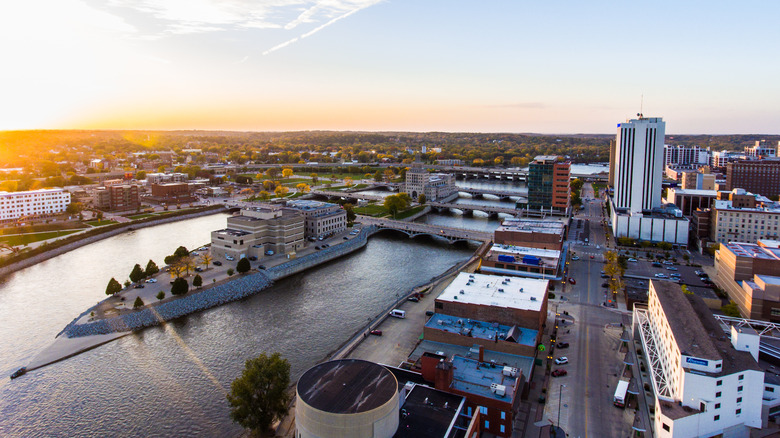
Jonathannsegal/Shutterstock
If the rare possibility of a crowd is fine, but you just don’t want to go to a perpetually crowded place, a trip to a small town or city could be the perfect solution. Cedar Rapids, Iowa, makes for a great, fairly uncrowded escape. The Hawkeye State’s second-largest city has a quirky appeal, which seems fitting, since Grant Wood, who painted the iconic “American Gothic” painting, hails from here (you can visit the artist’s studio today).
Other highlights include the Cedar Rapids Museum of Art, lots of shopping and things to eat, and the delightfully honestly named Mt. Trashmore. A covered-over landfill, this man-made mountain rises 950 feet above Cedar Rapids and is known for the lovely view from its summit, as well as its bike trails. Another, less pleasant feature of Cedar Rapids is its “five smells,” which are the result of different factories and natural phenomena.
Despite this, Livability.com named Cedar Rapids as one of the Best Places to Live in the U.S. in 2023. But although a little more than 134,000 call it home, Cedar Rapids isn’t a popular tourist destination, so while you may occasionally encounter a busy restaurant or sold-out event, most of the time, you’ll have plenty of room to breathe and take in the ambiance without the crowds.
Monument Valley, Arizona
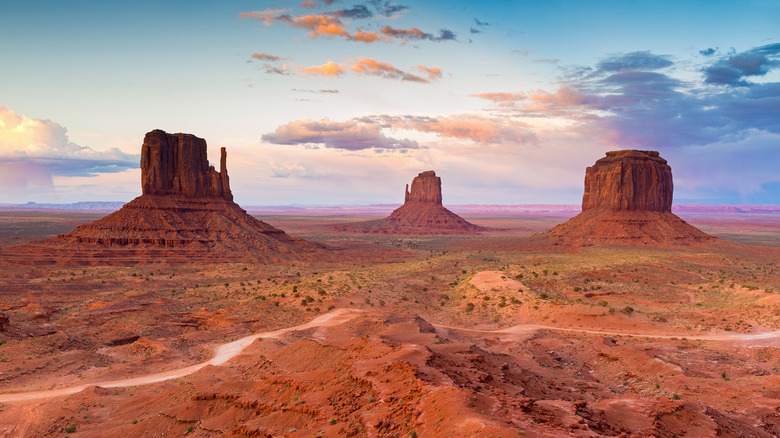
Chrishepburn/Getty Images
Its incredible, unique rock formations make Monument Valley an awe-inspiring place to visit, not to mention one near and dear to many movie fans’ hearts. Located on Arizona’s border with Utah, the site is a Navajo Nation Tribal Park and has been the setting of numerous films and TV shows, including John Ford’s classic “The Searchers” and “Back to the Future: Part III.”
Visiting Monument Valley might have you imagining crowds of tourists and being blocked in your car on its famous loop road. But come in the spring or autumn and you’re in for a very different experience. The temperatures are milder, the crowds are sparser, and you can take in the magnificent vistas as long as you like. A winter visit is also something special, especially if you happen to be here when it snows (just be sure to check the park’s website to find out about any weather-related closures or issues).
There are several ways to visit Monument Valley. The most common is the loop road, which allows you to drive your car on a designated road among the rock formations to visit lookout points. You can also go off-trail with a guide and even stay in or near the valley at a hotel or campground. Some accommodations may be a bit crowded at high season, but the off-season will likely allow you to experience a bit more solitude as you commune with one of nature’s most awesome sites.
One Square Inch of Silence, Hoh Rainforest, Washington
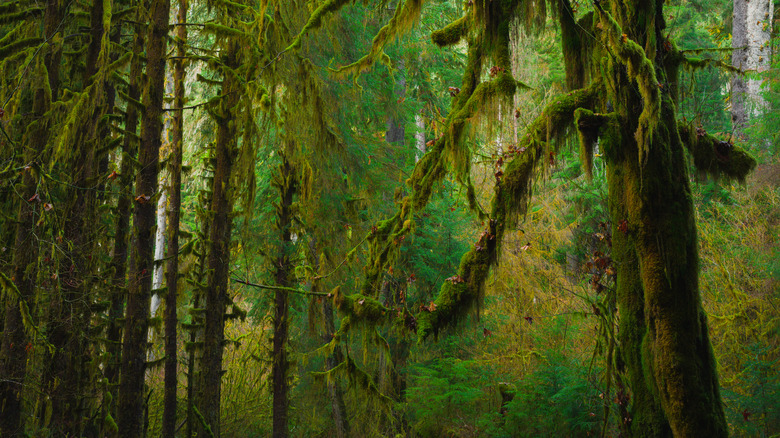
Gcshutter/Getty Images
If the noise of the crowd, or even just everyday sonic clutter, drives you crazy, then consider heading to Washington State’s Olympic National Park, where you can experience pure, people-free silence. Here, in the Hoh Rainforest, sound recording specialist Gordon Hempton established One Square Inch of Silence, one of the quietest places on Earth. Reachable from the park’s Visitor Center by a low-impact, two-hour walk, the spot was chosen due to the lack of any nearby roads, human dwellings, and air traffic.
When you arrive at the small, red marker that indicates its precise location, stop and listen. You’ll hear pure silence garnished with the sounds of nature all around you. What a way to detox from the hustle and bustle of the regular world! If you want to make a few repeat trips to the One Square Inch of Silence, consider staying at the Hoh Rain Forest Campground, just six minutes from the Visitor Center. Reserve in advance if you’re visiting in May through September; the rest of the year, its campsites are available on a first-come, first-served basis.
Off-Grid Inn, Fall Creek, Wisconsin
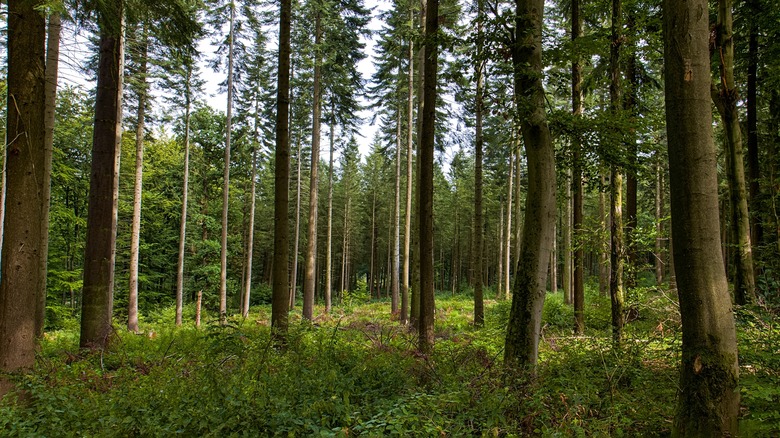
Shairaa/Shutterstock
Imagine sitting up in a cozy bed and seeing trees and nature all around you, without another person in sight. Off-Grid Inn can give you that experience, with a stay in one of two tiny houses — one slightly less tiny than the other. Both are located in a forested area in the small town of Fall Creek, not far from the city of Eau Claire, Wisconsin. But the tiny houses are set so far into the woods, and far enough from one another, that you’ll quickly forget there’s any kind of civilization nearby.
Staying in one of these tiny houses gives you more creature comforts than camping, with a bed, air conditioning/heating, a working shower, and Wi-Fi. Maybe you want to commune with the forest, or maybe you want to stay curled up in bed with a good book or a favorite movie immersed deep in the wilderness. If either of these scenarios sounds perfect to you, reservations are handled through Airbnb.
Wings Neck Lighthouse, Bourne, Massachusetts

Casarsaguru/Getty Images
If the isolated life of a lighthouse keeper has always appealed to you, here’s some good news: You can savor solitude and sea views in your own lighthouse. Well, at least for a while. There are several lighthouse rentals for overnight and longer stays throughout the U.S. Of these, Wings Neck Lighthouse seems like one of the best options.
Although the lighthouse no longer works, you can still climb up and go inside it. While maybe disappointing to aspiring lighthouse keepers, you’ll get all that lighthouse-y charm without having to worry about upkeep, responsibility, flashing lights, or foghorns. The property also has amenities like running water, bathrooms, and even working Wi-Fi, which isn’t always the case with more remote lighthouse rentals.
You’ll also get the perks that come with most lighthouse stays: a private beach, incredible views, and as much solitude as you want. You could go it alone or bring up to seven other people with you. The town of Bourne, Massachusetts, is only a few minute’s drive away, but the private, gated outcropping where the lighthouse and guesthouse are located will make you feel like you’re in another, more isolated world. This is especially true when standing in the lighthouse itself, gazing out over the waters. The Wings Neck Lighthouse is available to rent for one-week stays year-round, as well as long weekend stays in the off-season. Although lots of amenities are included, visitors must bring their own linens.

